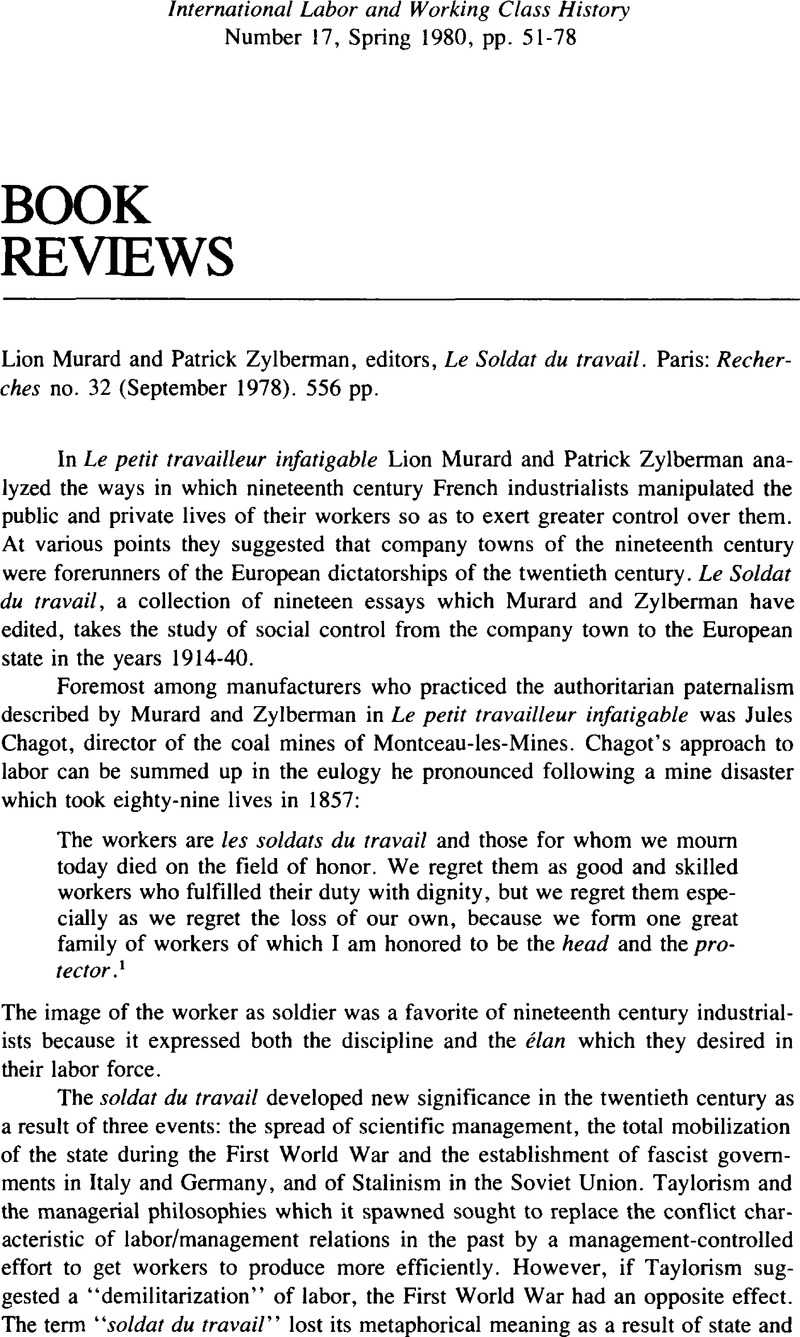No CrossRef data available.
Published online by Cambridge University Press: 16 December 2008

1. Sutet, M., “Jules Chagot: fondateur de la Compagnie des Mines de Blanzy (1801–1877). Étude de la mentalité d'un grand patron au XIXe siècle” in Actes du quatre-vingt-neuvième congrès national des sociétés savantes Lyon 1964. Section d'histoire moderne et contemporaine (Paris: Imprimerie nationale, 1965) II, 810.Google Scholar
2. On scientific management in the Soviet Union, see Bailes, Kendall E., “Alexei Gastev and the Soviet Controversy over Taylorism,” Soviet Studies, 29 (07 1977), 373–94CrossRefGoogle Scholar; Traub, Rainer, “Lenin and Taylor: The Fate of “Scientific Management” in the (Early) Soviet Union,” Telos, 37 (Fall, 1978), 82–92.CrossRefGoogle Scholar
3. American labor historians will be especially interested in a more recent article by Fine: “Hyacinthe Dubreuil: le témoinage d'un ouvrier sur le syndicalisme, les relations industrielles et l'évolution technologique de 1921 à 1940,” Mouvement social, 106 (01–03 1979), 45–63.Google Scholar
4. Other articles by Rittersporn which elaborate his argument include: “The State Against Itself: Socialist Tensions and Political Conflict in the U.S.S.R. 1936–1938,” Telos, 41 (Fall 1979), 87–104Google Scholar; “Société et appareil d'État en Union d'États soviétiques (1936–1938): contradictions et interférences,” Annales: E.S.C., 34 (07–08 1979), 843–67.CrossRefGoogle Scholar
5. Pioneering work on the rationalization of French labor includes: Hardy-Hémery, Odette, “Rationalisation, technique et rationalisation du travail à la Compagnie des Mines d'Anzin (1927–1938),” Mouvement social, 72 (07–09 1970), 3–48CrossRefGoogle Scholar; Corbin, Alain, Les Filles du noce (Paris: Aubier Montaigne, 1978)Google Scholar; works on automobile workers by Patrick Fridenson, J.M. Laux and Alain Touraine.
6. Professor Molly Nolan of Harvard University is currently studying the SPD position on rationalization in the twenties. It is precisely the absence of free working class unions and parties that makes this subject difficult to study in fascist Italy and Nazi Germany, although both Victoria de Grazia and Tim Mason have been quite successful. See also Passerini, Luisa, “Work Ideology and Consensus under Italian Fascism,” History Workshop, 8 (Autumn 1979), 82–108.CrossRefGoogle Scholar